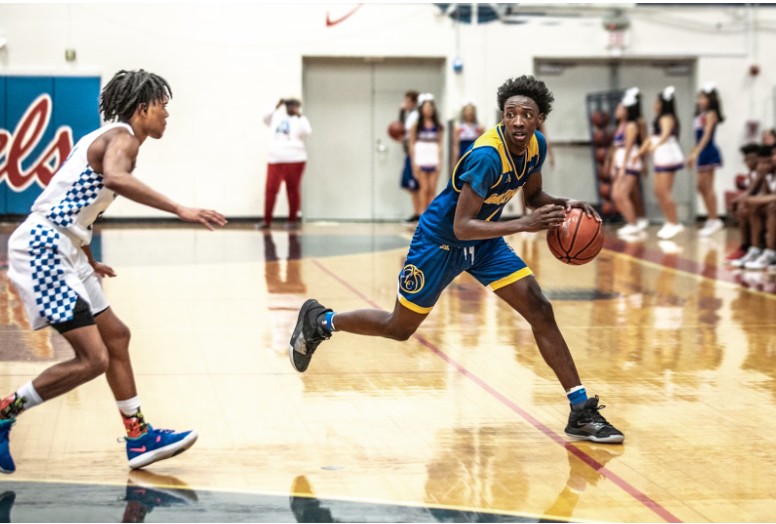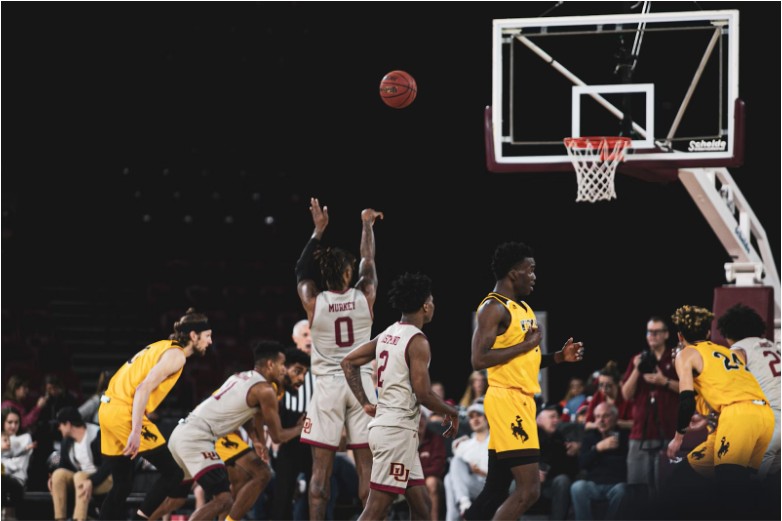Every match’s buzzer, every time a slam dunk is done, and every time a team takes a timeout, significant sums of money are transacted. The NBA is much more than its breathtaking games and finals fantasies. It is a fully-fledged business empire. All three-pointers are an additional calculated move towards making millions. There is everything: filled stadiums, tens of billions of dollars in media rights, and shocking figures. However, what is the procedure? What is the approach for monetizing skills? Let’s dive deeper.
More Than a Game
This goes beyond hoops; it’s a world-class brand. The NBA’s broadcast reach expands to 200 countries and will earn revenue of $13 billion in 2024. Jersey merchandise sales are on every corner, and LeBron James alone sells over a million units a year. Social media? It is booming. The league surpassed 2.4 billion social engagements last season. Every step back, every dance move fuels a nonstop engine.
Also, the exact powerful attention to detail that factors into the success of global sports brands has also been translated into the world of online betting. It is not sufficient to be a mere spectator; one must fully participate, considering all the game’s intricacies. Today, with the help of betting online, everyone can try their luck and knowledge in sports forecasts. This world allows them to follow the matches and participate in the events, improving their analysis and strategy skills!

Inside the Front Office
The NBA is organised like an investment corporation and is looking into the inner workings and dealings of the company. Every micro step, consisting of a player trade or rookie contract renewal, has direct, merger-level profit flow. For example, Damian Lillard was traded in 2024, where seven other players and two teams were traded, encompassing a massive 250 million dollar salary shift. Lidle’s new team is trying to capture prospective championship players while dangling a 165 million luxury tax over a 190 million dollar salary cap.
Assigning tasks is an exercise bound to a structure. The sharp minds of the Golden State Warriors propelled their team’s valuation far beyond 8 billion dollars, which was stunning to chase the Center, which spends well over 150 million dollars on contracts and event suite sales. General Managers are tasked with simultaneously mastering finance on equal footing with Basketball. It requires a sports genius level of understanding, so every single step is meticulously crafted, executed, and engineered to extreme profit optimization and fine-tuned analytics to the last tweak; not a single action is done blindly.
Deals Beyond the Court
It’s not just the game that makes the cash register ring. Off-court deals pour in from all angles. The NBA’s ecosystem thrives on external money streams, and here’s how they cash in:
- Media Rights: The corporations ESPN, BNT, and ABC hold broadcast deals with and pay a staggering 2.6 billion dollars annually.
- Sponsorships: Team and league sponsorships have cumulatively amassed over 1.4 billion dollars, with notable companies Nike, Gatorade, and State Farm leading the charge.
- Merchandise: Sales hit an all-time high, with the NBA store bringing in 1.1 billion dollars, and China accounting for 35% of sales.
- Ticketing and Suites: While courtside seats cost about $40 thousand per game, luxury suites offer massive six-figure deals for all-season long access.
These numbers aren’t just impressive — they’re essential. The league’s off-court strategy is as aggressive and calculated as its on-court tactics. And by the way, the same strategic approach can be found in the MelBet app – the best betting app, where every step and every decision is essential. Here, too, the game goes beyond the field. But do not forget that attention to detail always gives an advantage!
Tactics with a Price Tag
Coaching resources support the available assets. The average wage of an NBA head coach is 40k a year. Spoelstra and Steve Kerr are the highest earners at 10m annually. This is still just a small portion of their overall earnings.
Every team has an analytics division, which is worth millions. Their data team is why the Raptors were crowned champions in 2019. They also have tracking systems such as Second Spectrum, which charge over 500k annually. The Nuggets spent over 10m building the new UC Health Training Center, incorporating state-of-the-art rigid altitude rooms, AI rehab technology, and biometric monitoring systems.
Every other additional facility is equally modern and state-of-the-art. Every franchise receives intel on each draft-eligible player as proprietary information from different franchises. This alone increases spending on existing technology, personnel, and research into the multiple-million-dollar range. The price tag for even a basic clipboard is outrageous in the NBA.
How Stars Shape the Market
Markets take off as a new star emerges. Moreover, with the presence of a superstar comes drastic changes. Teams and cities gain greater value, and entire fan bases emerge and grow in seconds. Here’s how these athletes shift the paradigm:
- In just two seasons, LeBron James added over half a billion dollars of economic activity in Los Angeles.
- The Spurs’ Victor Wembanyama’s appearance as a marquee player led to a 135% increase in ticket sales in his rookie season.
- Zion Williamson’s debut game on TNT was watched by 2.3 million people, the most for a debut in the last ten years.
- Merchandise sales in the area shot up 190% in a month after Kevin Durant moved to Phoenix.
Branding as a Power Play
Branding in the NBA has always been more than just logos: teams tend to peak fans’ imagination with elaborate identities and brand-building. Ultimately, every sports activity is also a business, and being profitable could be more vital for teams and players than their winning score. Heat culture or Lakers glam are all constructed narratives that enthrall fans. And with what return? Astronomical rewards! Even decades after the Jordan era, the Chicago Bulls remain fifth in global merchandise sales.










